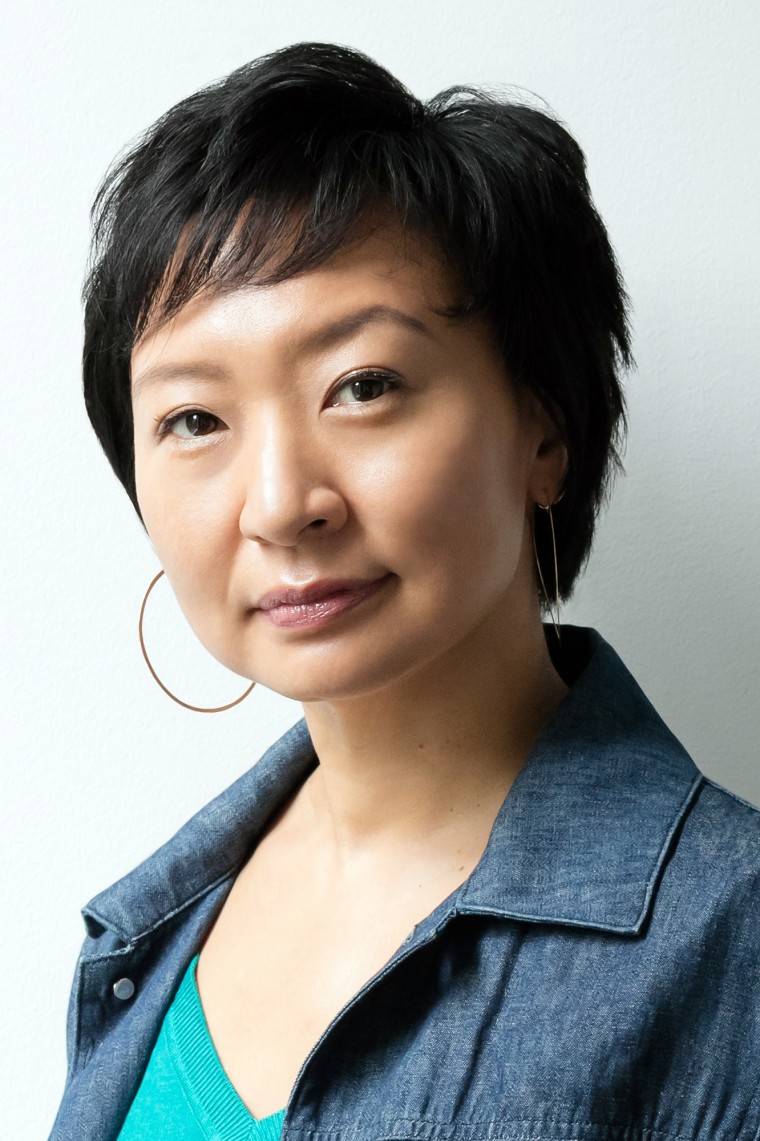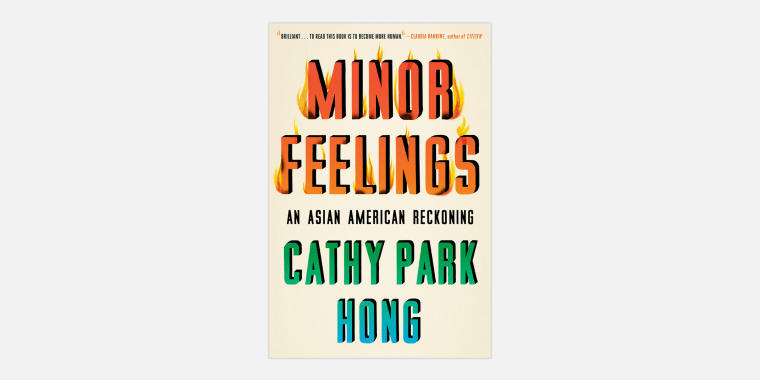Poet Cathy Park Hong tackles the complexities of the Asian American experience in her incisive essay collection, "Minor Feelings: An Asian American Reckoning," published last month by One World. "Most Americans know nothing about Asian Americans," she writes. "They think Chinese is synecdoche for Asians the way Kleenex is for tissues. They don't understand that we're this tenuous alliance of many nationalities."
Hong fuses memoir, cultural criticism and history to investigate topics from self-hatred and depression to shame and capitalism. She also explores Asian Americans' "vague purgatorial status," distrusted by African Americans and ignored by whites "unless we're being used by whites to keep the black man down," and the "model minority myth," which she says masks real discrimination suffered by Asian Americans.
"There are a lot of fantastic Asian American writers who've come out and are coming out in 2020, and what a sad irony that they're now publishing these books when anti-Asian racism has spiked," Hong told NBC Asian America. "I hope that the stories and the poetry and artwork that's coming out can act as a counterweight to the hate."
Hong, poetry editor of The New Republic and a professor at Rutgers-Newark University, is the author of the acclaimed poetry collections "Engine Empire," "Dance Dance Revolution" and "Translating Mo'um." Her poems have been featured in Poetry, A Public Space, The Paris Review and McSweeney's, among other publications.
We chatted with Hong about her book of creative nonfiction, the invisibility and current hypervisibility of Asian Americans and the rise in racism during the pandemic.

NBC Asian America: You argue that Asian Americans are often invisible in society, but in the last few weeks we've become hypervisible and the victims of racist bullying and physical attacks. Does this moment remind you of past scapegoating in the U.S.?
Cathy Park Hong: Right now, Asians are seen as diseases, which reminds me of the late 1800s, when Chinese immigrants were seen as vermin. It's like the return of the yellow peril. We're seen as foreigners and enemies. Then there's the Japanese internment camps where Japanese Americans were scapegoated, as they were in the 1980s, too. South Asians were considered part of the "model minority," and then after 9/11, Asians who were visibly Muslim or South Asians who were brown became targets. This happens all the time. Assimilation doesn't save us.
NBC Asian America: Trump and other Republicans have used the term "Chinese virus" to describe the coronavirus pandemic. How did you feel seeing the photo of his remarks where he'd crossed out the word "corona" and replaced it with "Chinese"?
Hong: I was enraged. However, I wasn't surprised. It's a strategic move. Instead of facing up to his own errors, he blames it on immigrants. When he realized that the coronavirus was going to be a catastrophe, he was, like, "Let's just place it on the Chinese and anyone who looks Chinese." He's made the anti-Asian racism official and is enabling it, but it was widespread before he called it "Chinese virus."
NBC Asian America: After widespread criticism, Trump recently wrote on Twitter: "It is very important that we totally protect our Asian American community in the United States, and all around the world. They are amazing people, and the spreading of the Virus is NOT their fault in any way, shape, or form. They are working closely with us to get rid of it." What did you think about his use of the words "they" and "us"?
Hong: We're not "us." We're not part of the U.S. We're still foreigners. That's just typical of Trump. It's typical of America. Asians are never part of the U.S. and never American.
NBC Asian America: The term "Asian American" has a radical history that's unknown to most Americans. Do you think there's a future Asian American identity that can encompass the vastly different experiences of Asians in the U.S.?
Hong: I don't know. In the late 1960s, what mobilized a lot of Asian Americans was the rampant racism and xenophobia, but it was also the Vietnam War. Perhaps now that anti-Asian racism is out in the open, this will be a reckoning for Asian Americans to unify. There are Asians in the younger generation who are much more progressive and radicalized by climate change and Bernie and Black Lives Matter, but there are also Asian Americans for whom race was not a part of their lives. They prefer to live in their bubble, still in the Sunken Place, and I think this was a wake-up call for them. I hope there's more of an awakening and a stronger allyship with other people of color.
NBC Asian America: You write about "minor feelings," which you say occur when "American optimism is enforced upon you, which contradicts your own racialized reality, thereby creating a status of cognitive dissonance." Can you talk more about this racialized range of emotions?
Hong: Minor feelings are more about the anticipation of a racist incident or knowing you've been denied a job or promotion or emasculated because of your Asian identity but you can't find proof of it. It's suspicion, shame, melancholy, maybe frustration, anxiety and those feelings when your reality is constantly gaslit. One of the misconceptions about Asian Americans is that Asian Americans don't experience racism. This is what white people and some people of color think, because we don't experience racism the way African Americans or Latinx people do. Now we're seeing this blow up and people are really racist against Asians. These minor feelings are major.
NBC Asian America: What is the conflicted position of Asian Americans in the U.S.'s racial and capital hierarchy?
Hong: I think there's a lot of misrepresentation where Asians are seen as wealthy and all doctors and lawyers, but Asian immigrants are in low-paying service industry jobs. I think there are a lot more Asian Americans in the working class than we acknowledge. This myth we're all crazy rich Asians — we are not. There's a real class divide among Asians that's not talked about and has to be recognized. Those of us in the professional class also suffer injustices. We're always middle management, but we don't get promoted because of racial discrimination.
NBC Asian America: Do you think Asian Americans will always be trying to assert their humanity?
Hong: Racism never goes away. It adapts. Maybe certain groups within the Asian American umbrella will become white or pass as white, but then there will be other groups discriminated against. I don't have a lot of optimism about America overcoming these inequities. Right now, racism against Asians is a spectacle. It's camera-ready. We're seeing people being visibly harassed. Maybe that will indicate to other people there is actually racism against Asian Americans. These prejudices don't come out of the blue. They're under the surface.
This interview has been edited for length and clarity.
